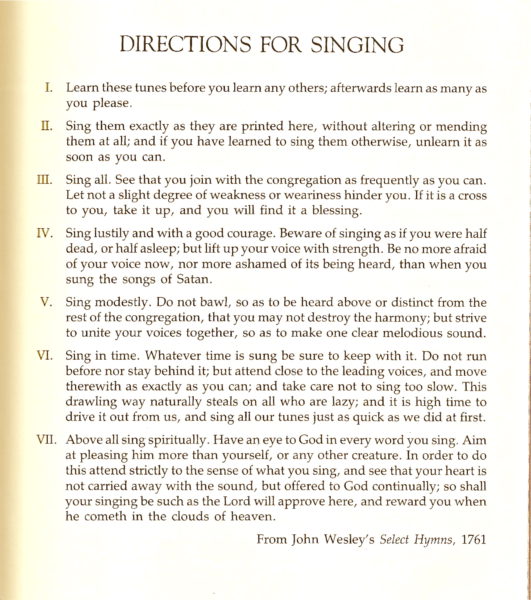“Sing to the Lord, you saints of his; praise his holy name.” Psalm 30:4 NIV
My family was very gifted musically. From my great grandparents, to my grandparents, to my mother, everyone could play an instrument and sing. My uncle stood me beside the piano and taught me to sing songs for my grandmother at the age of three; I can still remember the look of pride on her face as she beamed at us both. It sure made me feel like I was special and had really accomplished something great. As I grew older, we attended the Church of Christ with my paternal grandparents. My grandfather would stand me on the solid oak pew beside him and shared the hymnal with me. His deep, rich bass voice taught me the natural harmonics of music, and I learned to read music by watching the notes travel up and down on the staff as we sang. When it came to music, I had a wonderful childhood. I was blessed to be in Band in my school years; consequently, I never took choral studies or even sang in a choir until I was 40 years old.
Music is more important to our brains than we can know. It sparks our neurons and makes us think in a way that nothing else does. The exercise of reading music and playing an instrument or singing actually improves brain function. These activities can then lead us to personal contact with others who share the same love of music, creating a human link that would never have been discovered.
Music is a healing medium. People who are unable to communicate or understand speech patterns respond to music. Music speaks to everyone, from babies in the womb to the very aged. It transcends nationalities and class status. When we hear beautiful music played with love, we cannot help but smile. Music helps us see the beauty of the entire world.
In the front of our United Methodist Hymnal, John Wesley gives us “Directions For Singing.” Taken from his writings in Select Hymns, dated 1761, he reminds us to “Sing lustily and with a good courage. Beware of singing as if you were half dead, or half asleep; but lift up your voice with strength.” G. F. Handel also tells us to “lift up thy voice with strength; lift it up, be not afraid” in Messiah, the air for alto “O thou that tellest good tidings to Zion.” These are only two examples of the permission given to us all to lift our voices in praise and thanksgiving to God, for His love and especially for His Son, Jesus Christ. I know God will be listening for us on Sunday, and I look forward to hearing you then!
Sue Gibbons, The Worship Team



